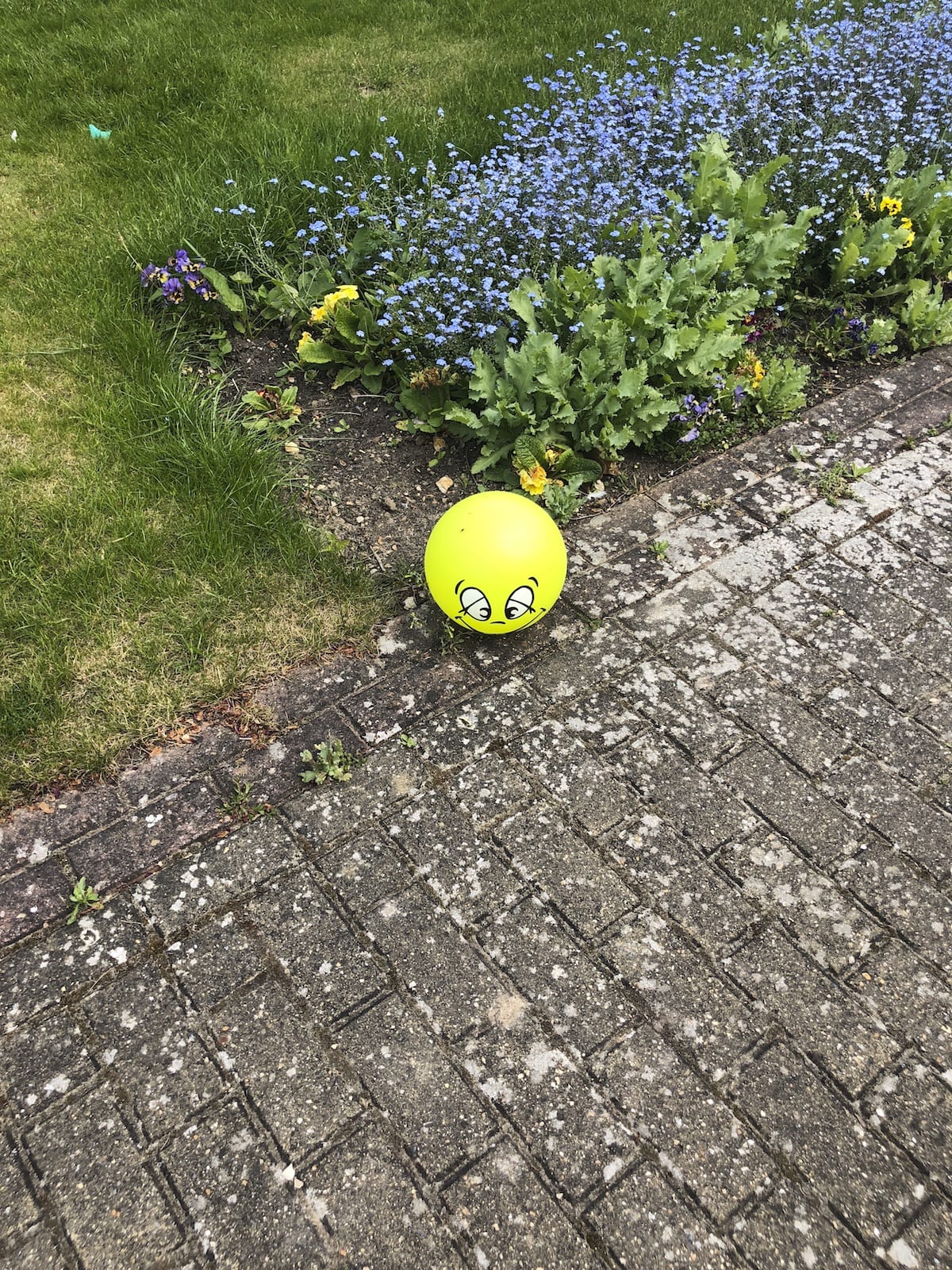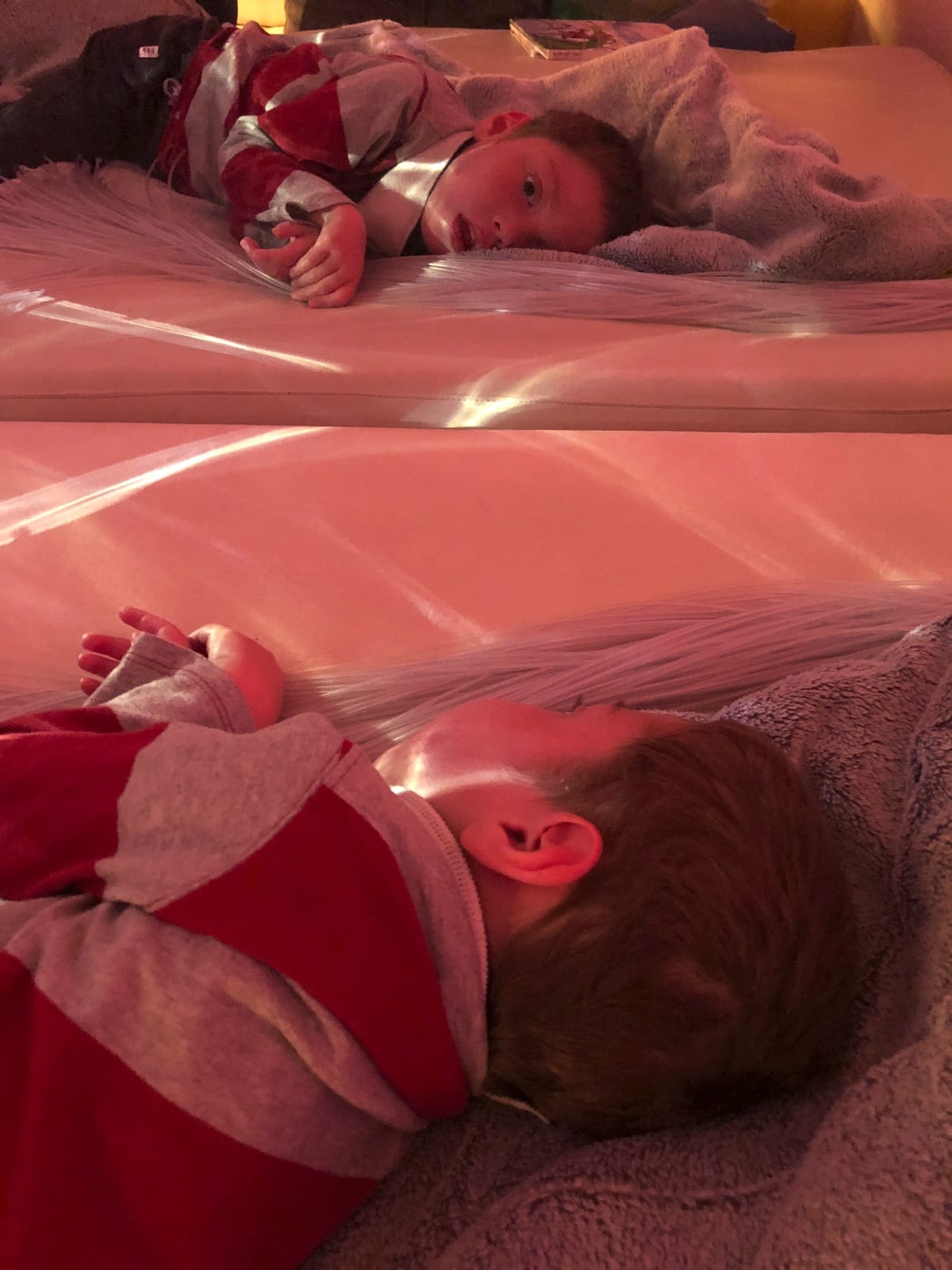Name a contemporary figure and it is likely that Juergen Teller has photographed them. Björk, Kurt Cobain, William Eggleston, Kate Moss, Kim Kardashian and David Hockney have all stood in front of his camera. So too have Teller’s mother and children. When it comes to subjects, however, the photographer’s latest body of work – and subsequent exhibition – is somewhat different.
Demelza Kids comprises more than 30 photographs of terminally ill children receiving care from the UK-based charity Demelza Hospice Care for Children. The series – mostly portraits – was created by Teller over several months at the charity’s two hospices in south England. The aim is not to raise money directly through the photographs themselves; rather it is hoped that the images will raise awareness.
The exhibition is hard-hitting. The children photographed all have terminal conditions and require specialist care – several have died since Teller took their portrait. It is a reality that is difficult to document, but that is the point. “It had to have a certain heaviness,” says Teller, “or it would miss the point.” But, the photographer also captures a sense of joy and playfulness through the work. “It is like a kindergarten,” he remarks, speaking of the two hospices he visited. “They are partly heavy but also happy – the children have a fun old time there.”

The series was photographed exclusively using a mobile phone. This was a last minute decision by Teller; an effort to be less intrusive and in doing so create more intimate, and therefore honest, photographs.
It is yet to be decided what will happen to the series beyond the week-long exhibition in London. Teller, however, is adamant that they will remain as a single body of work and not be sold to individual collectors: “it does not feel right for a rich guy to come and buy one of these photographs,” he says.
Speaking to BJP-online at the exhibition at Bonhams auction house, Teller discusses the importance of integrity, his momentary disillusionment with photography and why the work he creates has nothing to do with the camera.
–
Of all the charities you could work with, why a children’s hospice?
I have two children. When your child breaks an arm or a leg, or has an appendix out, or simply a toothache, you worry about it in a totally different way than if you were in that same situation. You are protective of your children and you take it for granted that they are normal, whatever normal is.
Were you daunted by the project? There is a certain amount of responsibility that goes with a project of this sort.
From the start, I was very nervous. I felt responsible. I was nervous about what the parents would think. How heavy do I want to hit this subject? How soft? How rose tinted? It had to have a certain heaviness, or it would miss the point.

People often find it uncomfortable to talk about, let alone confront, difficult subjects. Is that something you can relate to?
Yes people find every different subject hard to talk about. My mum’s partner, his health declined more and more so I went to Germany to visit him. And by the end of it he had to be in a hospice. That was around the same time that I was creating this project. 91 years old and I was still playing chess with him. I just saw how my mum visited him every day and had to take his shitty underwear back home to wash. It is like this – all these difficulties that people don’t want to talk about in life.
What will happen to the work beyond this exhibition?
Under normal circumstances you create a project and then you sell it and, in this case, that would make money for the charity. But, it doesn’t feel right for a rich guy to come and buy one of these photographs. Okay, it would give the charity money but what the fuck is the guy doing with this picture? I can imagine that a museum would acquire the whole series. It is one work. It is stupid to sell them individually, it removes the context. It was important to keep the integrity of the children, of the parents, of Demelza, of me.
Some people would question photography taken using a mobile phone as real photography.
Why would they question that? There are purists around that think of photography as photography. For me, it is completely irrelevant. Photography is not important to me: I don’t care about the type of equipment that I use to get the photographs. For me it is about life. I really don’t care about the photography, it is more about what I want to express.
What effect did the project have on you?
Around the time that I did this work, I felt a bit disillusioned with photography. This project gave me hope. For me, this project made photography make sense. It left me with a positive feeling.
Why the disillusionment?
There was a time when commercial photography became too restrictive for me. The clients had too much control. How do I put it? Simply, at the time it did not feel exciting.
Demelza Kids is on display at Bonhams, New Bond Street, London, until 16 April 2019. www.juergenteller.com – www.demelza.org.uk
–



